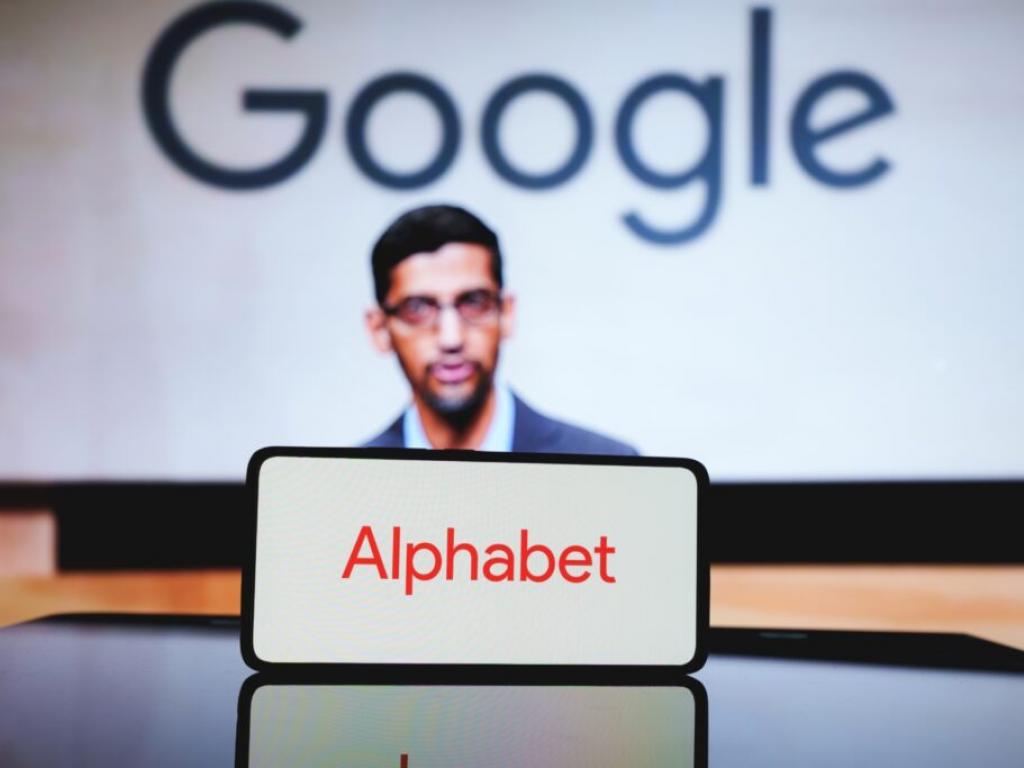Alphabet's Chrome Crisis: The DOJ Move That Could Shake Top Tech ETFs
Author: Chandrima Sanyal | June 03, 2025 03:43pm
Alphabet Inc.‘s (NASDAQ:GOOGL) legal woes just got more worrisome, at least for those investors riding on Big Tech ETFs. With the Department of Justice pushing for a forced breakup of Google’s Chrome browser after the company’s historic antitrust trial defeat, the danger is no longer theoretical. It’s hanging over them.
Barclays analysts are now estimating the chances of a Chrome split as increasing, though still low, and are warning that the impact could be extreme: a 15% to 25% drop in Alphabet stock.
The browser has 4 billion users worldwide and is said to contribute 35% of Google’s search ad revenue. If spun out, financial (and index-weighting) implications could be substantial. Forced divestiture of Chrome would not only impact Alphabet’s bottom line, it has the potential to shake the core of some of the most widely held ETFs in the market.
Let’s drill down into the funds most at risk from GOOGL:
- Invesco QQQ Trust (NASDAQ:QQQ): QQQ is the Nasdaq-100 tracker that tech investors adore, and Alphabet adores QQQ right back. The fund has more than 4% exposure to Alphabet, divided between Class A shares and Class C shares. A 20% decline in Alphabet would hurt QQQ’s performance, particularly when accompanied by potential ripple effects on other mega-cap tech peers.
- Trenchless Fund ETF (NYSE:RVER): RVER is an ETF with more than 11% exposure to Alphabet, and right in the crosshairs if GOOGL collapses. Its diversification in mid- and large-cap tech stocks and in other sectors like Communication Services, Healthcare and Industrials provides some cushion, but not enough to ignore a 25% plunge in one of its highest positions.
- Vanguard Mega Cap Growth ETF (NYSE:MGK): MGK is a who’s-who of Big Tech, and it’s double its love for GOOGL, with more than 5.5% of its holdings invested in Alphabet (Class A and C shares together). MGK’s mission to own the “growthiest” of mega caps makes it closely tied to FAANG+M, so regulatory shocks like these pose no small risk.
NAV Impact and Tech Sector Tilt
A sharp decline in Alphabet’s share price would pull down NAVs for big tech and growth ETFs. More significantly, it would disrupt sector weightings, particularly in passive funds where FAANG exposure is paramount.
Index providers can also be compelled to rebalance or reclassify if Chrome is spun off as an independent AI-focused browser, particularly if it finds new ownership.
It’s Not Just About Price
What makes this even more complex is that ETFs are subject to index regulations. If Chrome becomes an independent company, particularly with new ownership, index providers such as MSCI, S&P, or FTSE might need to rethink how and where the companies end up getting ranked.
- Here’s a possible chain reaction:
- Alphabet could lose market cap weight, dragging it down ETF rankings.
- Depending on its form and ownership, a newly independent Chrome might find its way into AI, internet services, or software ETFs.
- Index rebalancing temporarily would warp flows and valuations among tech-heavy funds.
Final Click
Though a Chrome breakup remains a low-probability outcome for now, markets rarely offer advance warning before rerouting. For ETF traders—especially those concentrated in tech growth and AI—the DOJ case is more than courtroom drama. It could be the browser window that triggers a broader portfolio reset.
Read Next:
Photo: Shutterstock
Posted In: GOOGL MGK QQQ RVER VGT





